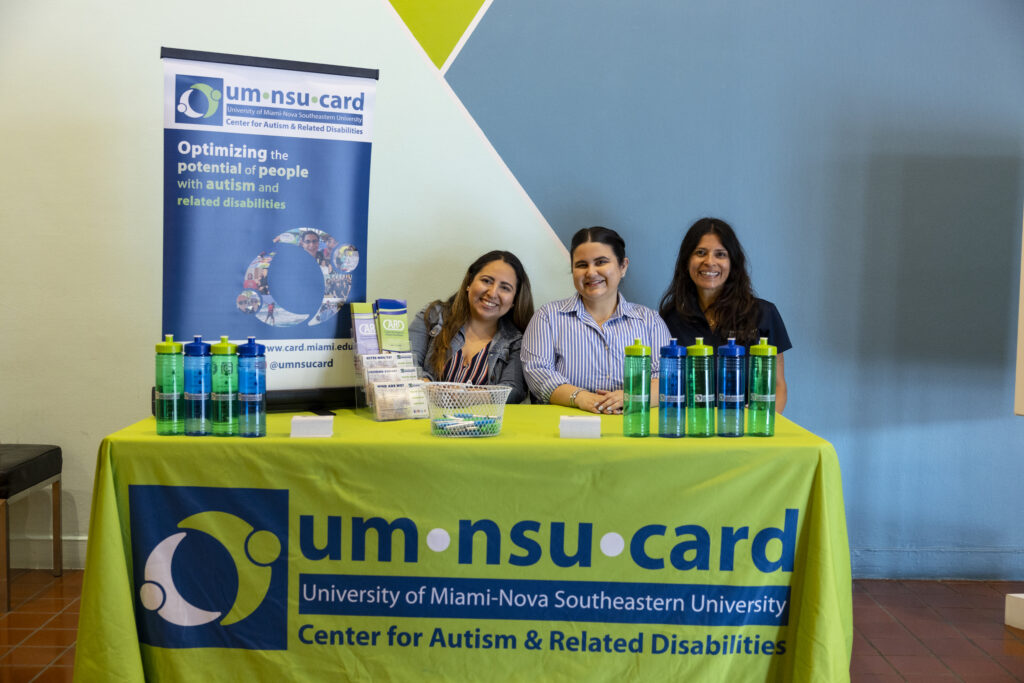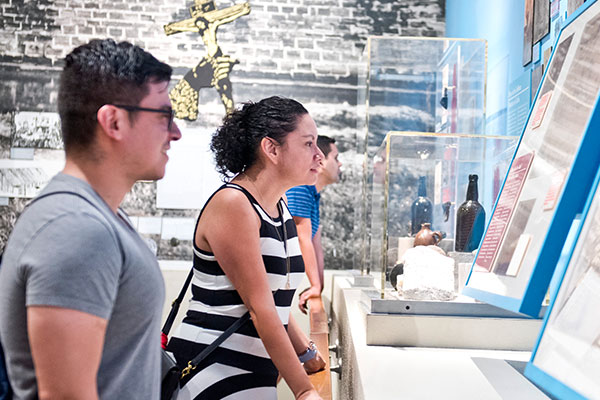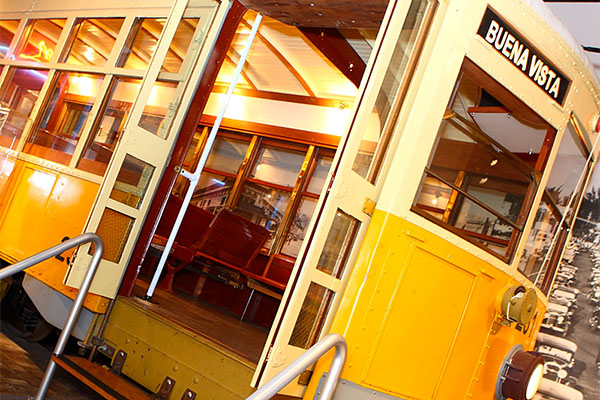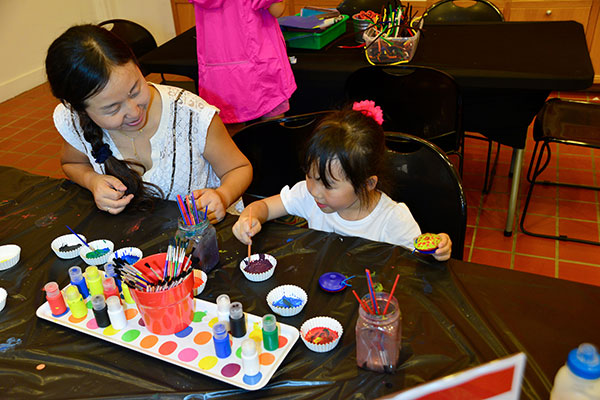HistoryMiami Museum is committed to providing inclusive experiences for all visitors. To request materials in accessible format, sign language interpreters, and/or any disability accommodation, please call 305-375-1601 or email accessibility@historymiami.org at least two weeks in advance of your visit to initiate your request. TTY users may also call 711 (Florida Relay Service).
Getting to the Museum
Parking
Miami-Dade Cultural Center Garage, 50 NW 2nd Avenue
Take the south elevator to the second floor exit. Exit this floor and follow the pathway across a covered, above street level footbridge that leads directly to the Miami-Dade Cultural Plaza. Parking for Museum visitors with validation is a flat rate of $5. Parking may be validated at the Museum’s Visitor Services desk.
Please note: The street-level elevator at Government Center leading to the Cultural Plaza is temporarily out of service due to maintenance.
View Parking Garage HoursPublic Transit
The Museum is conveniently located across from Government Center Station. To plan your trip, visit Metrorail, Metromover, Metrobus, City of Miami trolley or City of Coral Gables trolley.
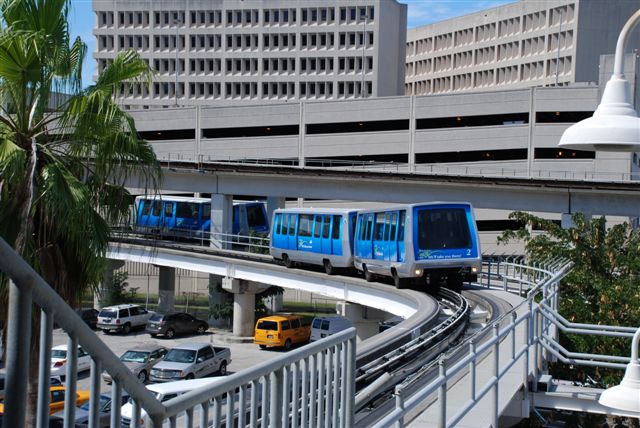
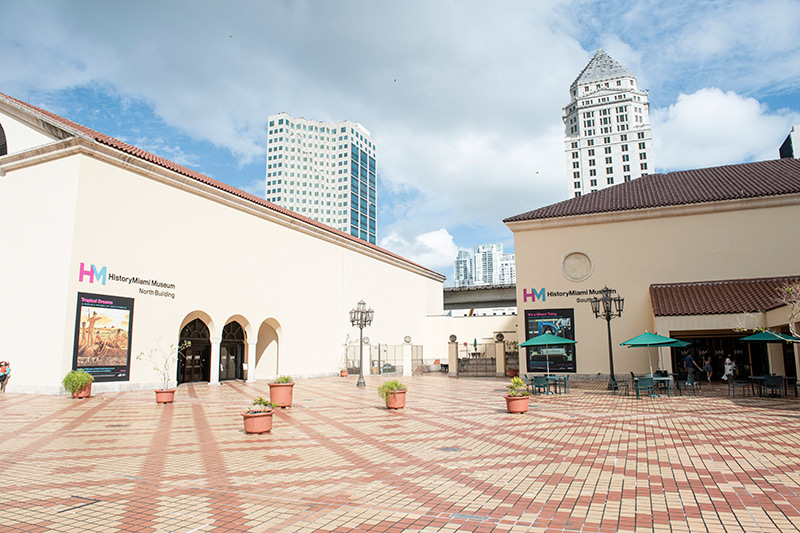
Entrances
The Museum is located on the plaza level of the Miami-Dade Cultural Center. The plaza level is accessible by elevator from either the ground level or from the parking garage.
The Museum is comprised of two buildings, North Building and South Building. The North Building is equipped with automatic sliding doors, which are centrally located. The South Building is equipped with a power-assist door on the far left of the entryway.
Museum Accessibility & Services
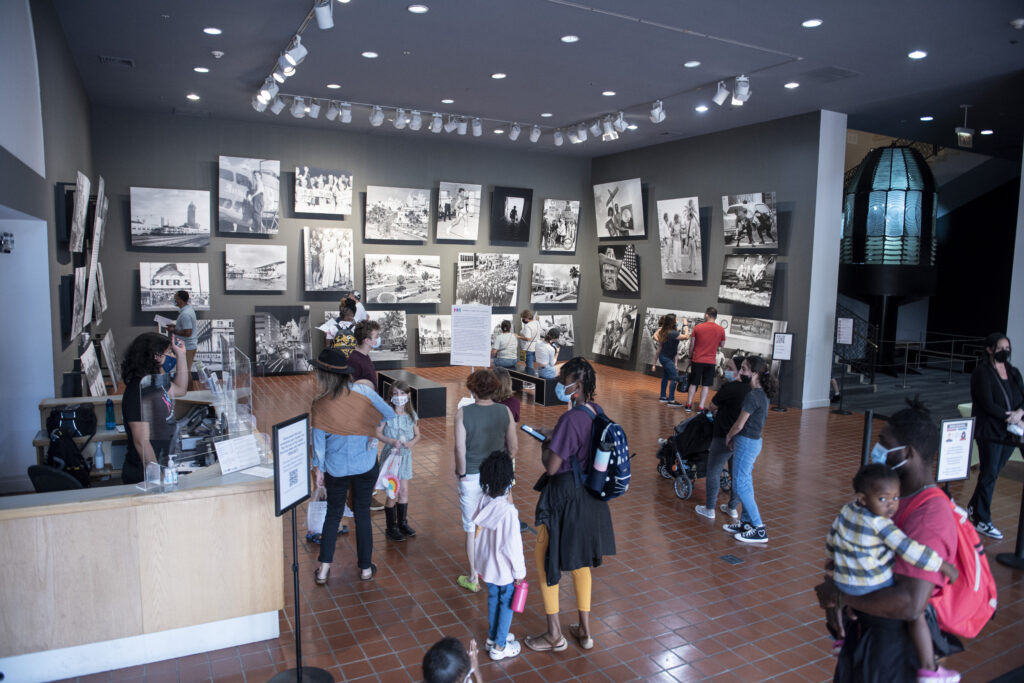
Discounts
The museum offers complimentary admission for people with disabilities and their caregivers. Complimentary admission is available for individuals or groups of 9 or less.
For groups of 10 or more participants, please request a group reservation.
Plan Your Visit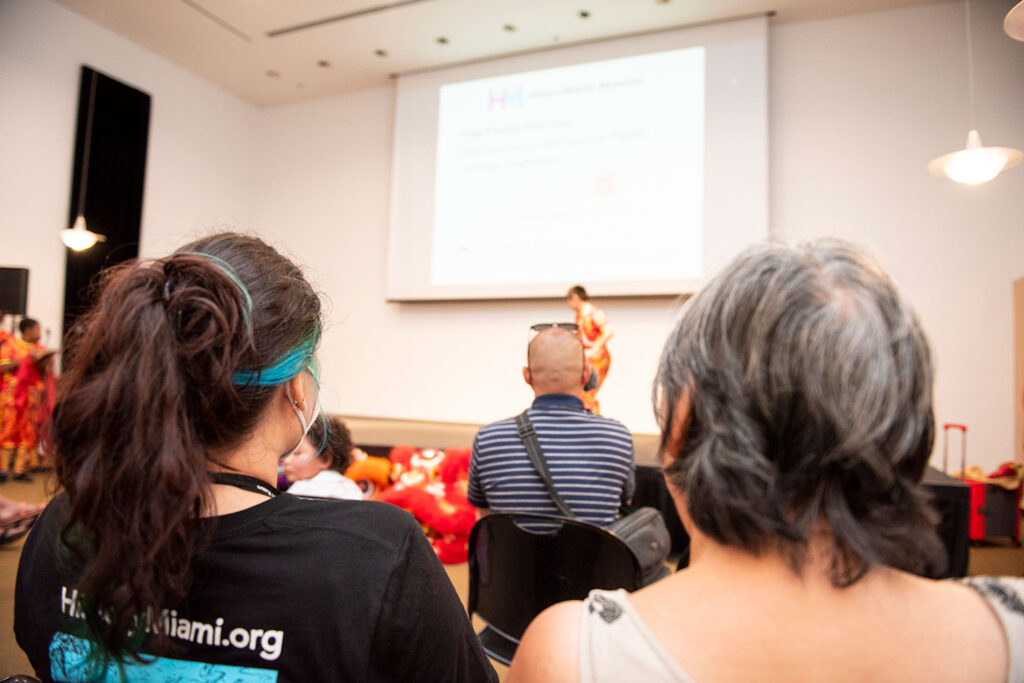
Personal Care Attendants (PCA)
Paid Personal Care Attendants (PCA) accompanying a visitor with a disability who requires the PCA’s assistance due to that disability are provided complimentary admission to the museum and its programs. Visitors may request complimentary admission for their PCA at the museum’s Visitor Services desk and the PCA will receive, free of charge, the same admission that was purchased by the visitor.
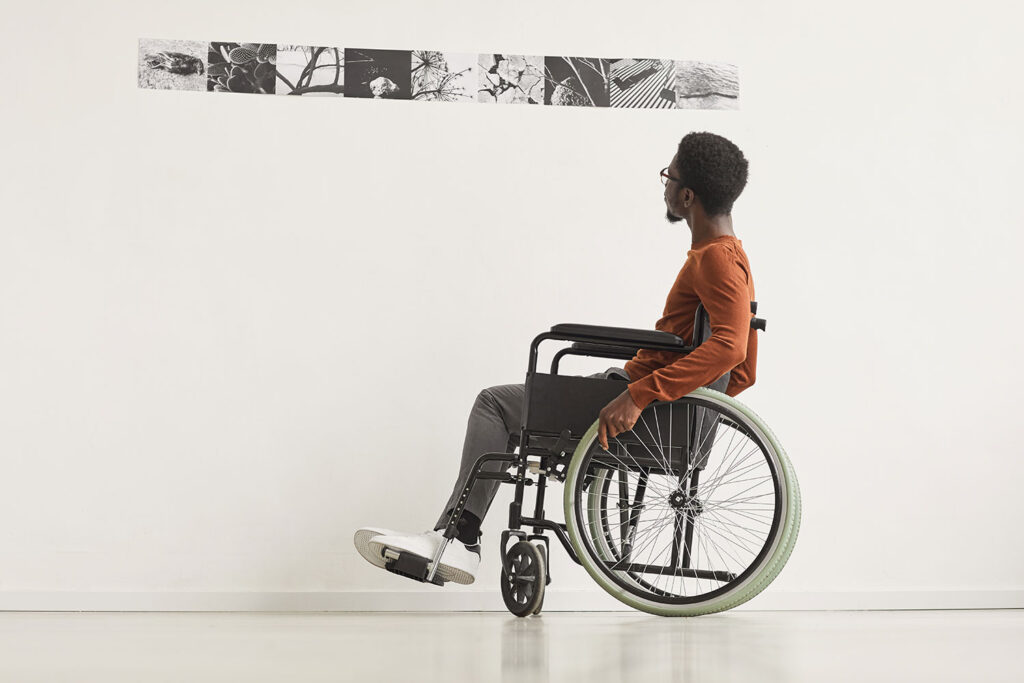
Mobility Devices
The museum’s core and temporary exhibitions are wheelchair accessible. A limited number of wheelchairs may be borrowed at the Visitor Services Desk in either building on a first-come, first-served basis. Guests are requested to leave a photo ID at the Visitor Services Desk while using Museum wheelchairs. Personal mobility devices, including walkers, wheelchairs, and OPDMDs, are welcomed.
OPDMD users must operate at walking speed, stay in control, and follow staff safety instructions.
Please note:
The recreational use of OPDMDs is strictly prohibited in the museum. Tourist rental Segways are not allowed.
Under ADA regulations, Museum staff may ask for credible assurance that an OPDMD is required due to a disability. This may be shown by a valid, state-issued disability parking placard or card, other state-issued proof of disability, or a verbal statement that the device is used because of a disability.
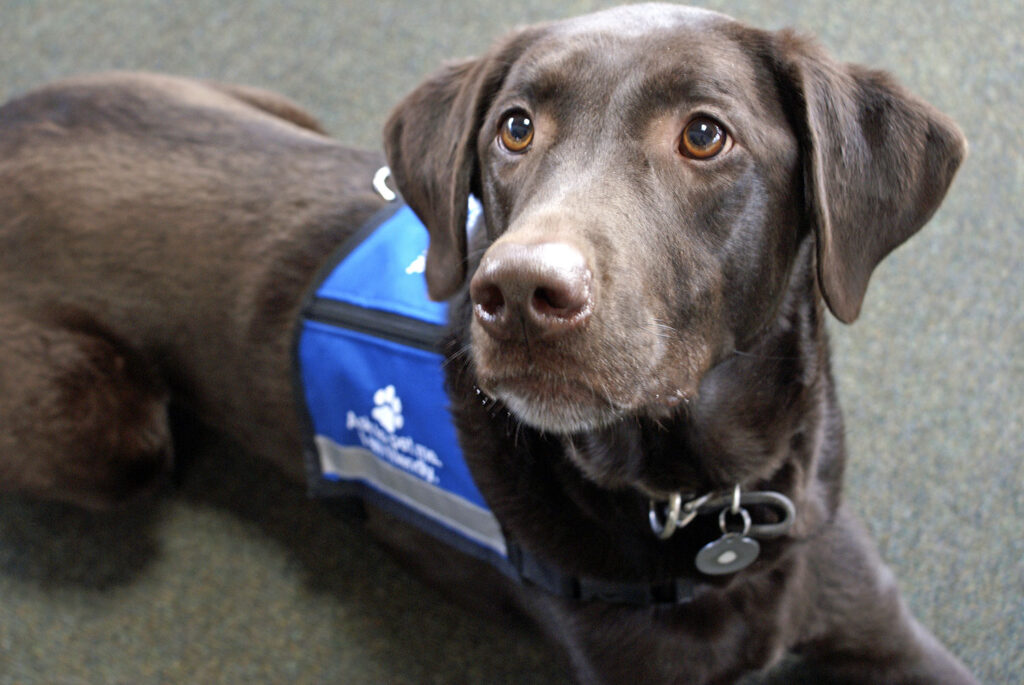
Service Animals
Service animals are welcomed at the museum. The ADA defines service animals as the following:
Service animals are defined as dogs that are individually trained to do work or perform tasks for people with disabilities. Animals whose sole function is to provide comfort or emotional support do not qualify as service animals under the ADA and will not be permitted. Under the ADA, Service Animals must be harnessed, leashed, or tethered, unless these devices interfere with the Service Animal’s work or the individual’s disability prevents using these devices.
A person with a disability may be asked to remove their Service Animal if:
- The Service Animal is out of control and the handler does not take effective action.
- The Service Animal is not housebroken.
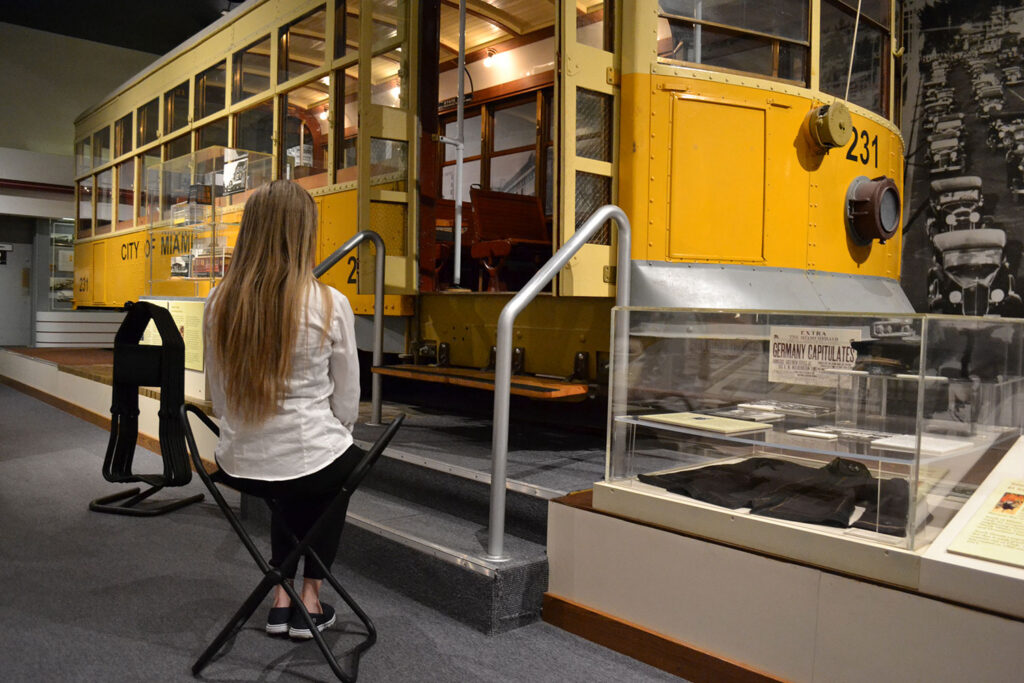
Gallery Seating
Portable seating is available in both buildings to be used within the museum galleries. The South Building portable stools are available just inside of the History & Ourselves exhibition to the right of the doorway and on the third floor in the elevator lobby. The North Building portable stools are available to the right of the stairwell, at the top of the grand staircase in the Tropical Dreams exhibition, and near the elevator on the third floor.
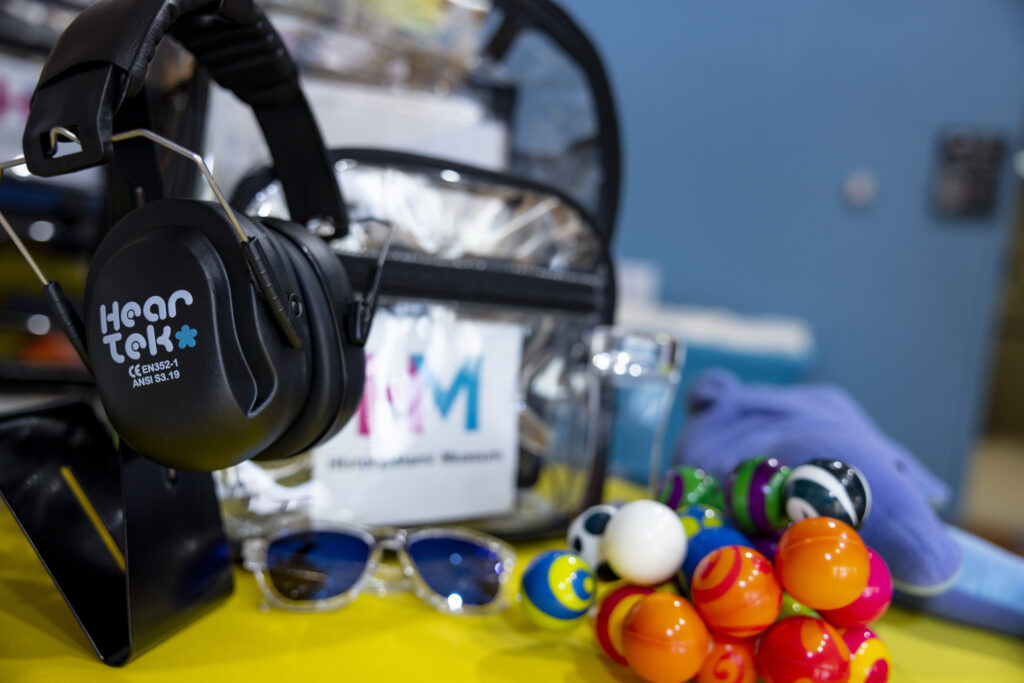
Noise-Reducing Headphones
Certain areas of the museum’s exhibition spaces may include loud audio. A limited number of noise-reducing headphones are available at the Visitor Services Desk in either building on a first-come, first-served basis. Guests are requested to leave a photo ID at the Visitor Services Desk while using these headphones.
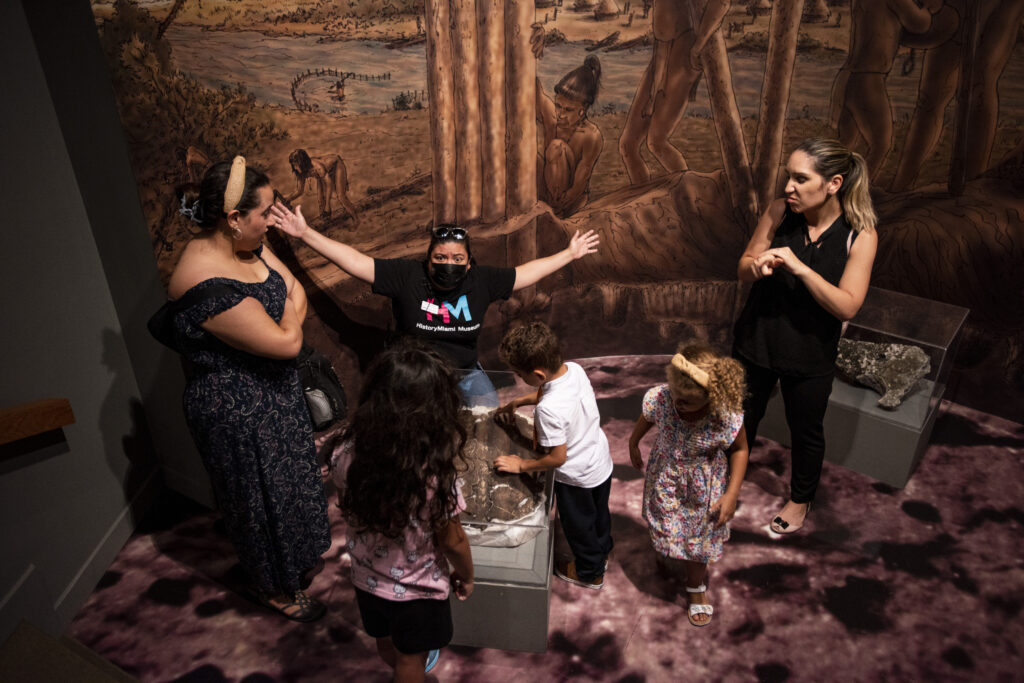
Sign Language Interpretation
American Sign Language (ASL) Interpretation is offered on select museum programs. To request sign language interpretation for a scheduled program, please contact Darianne Hernandez, Visitor Services Manager, at accessibility@historymiami.org or call (305) 375-1651 at least two weeks in advance of your visit to initiate your request.
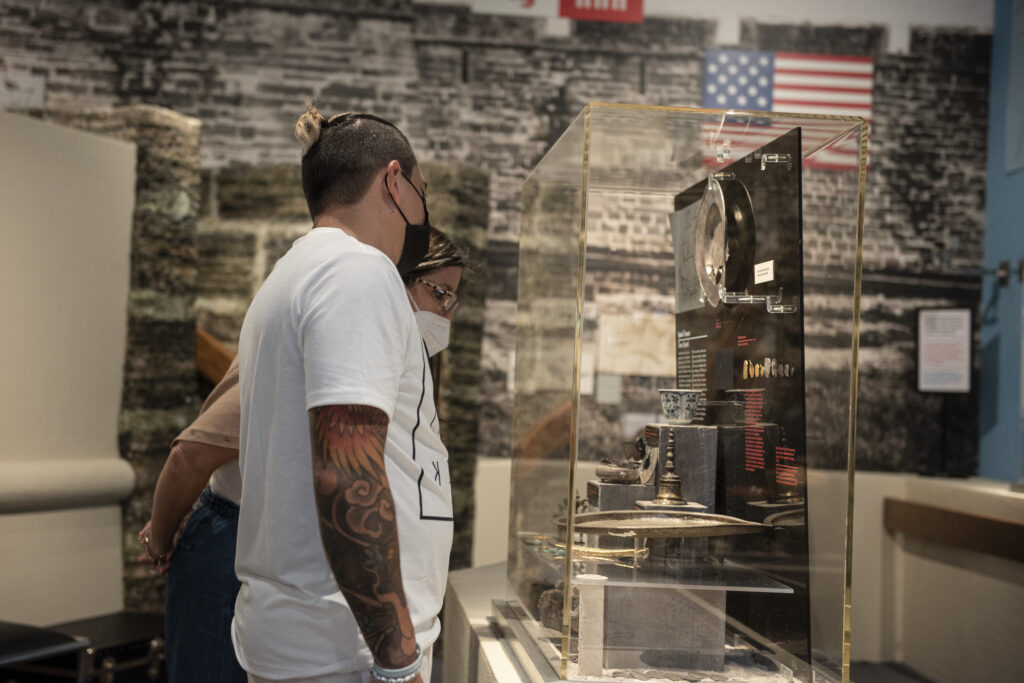
Tropical Dreams Audio Tour
Explore the museum’s core exhibition, Tropical Dreams: A People’s History of South Florida, on a self-guided audio tour. To participate, use your cell phone to call in to the number provided at our Visitor Services desk and follow the voice prompts. The audio tour is approximately 25-minutes in length.

Large Print Materials
Large print handouts of the text panels for our core and temporary exhibitions are available at the Visitor Services Desk in either building.
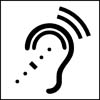
Assistive Listening Devices (ALD)
Assistive Listening Devices are available for programs in our theater.
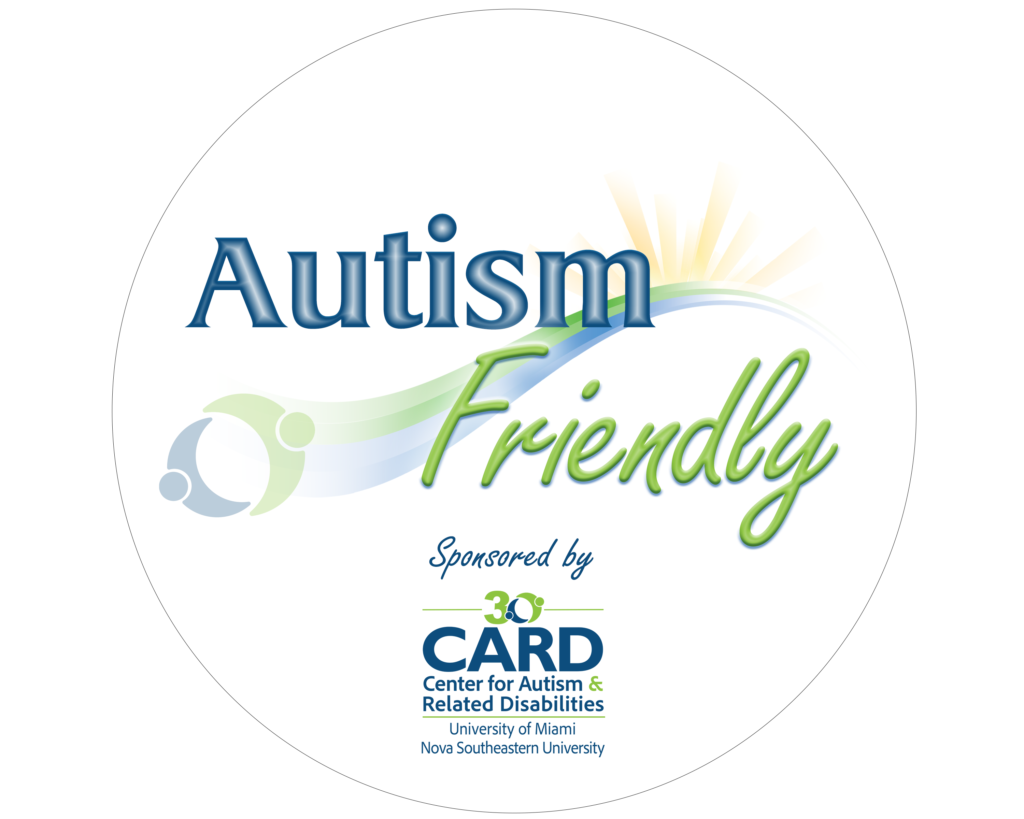
HistoryMiami Museum is recognized as an autism-friendly partner by the Center for Autism & Related Disabilities (CARD) at the University of Miami and Nova Southeastern University.
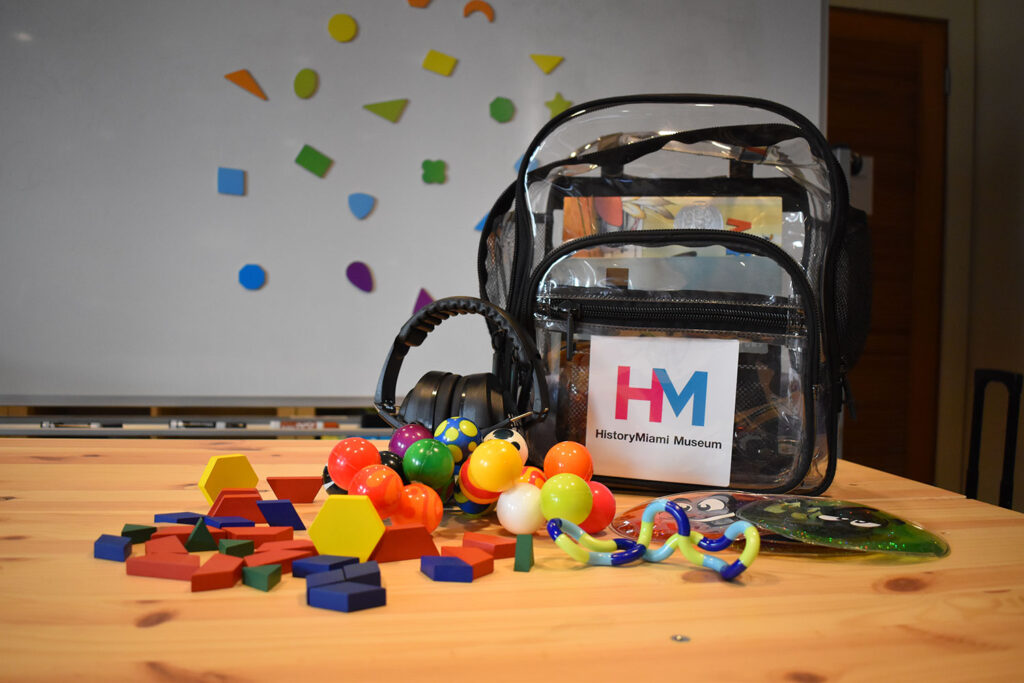
Sensory Backpacks
Sensory backpacks are available at each Visitor Services Desk and are free to checkout during your visit to the museum. Designed to help families of all abilities navigate and engage with the exhibitions, each backpack is equipped with noise-reducing headphones, fidget toys, a weighted wrap, emotion cards, a sound map, and more! Guests are requested to leave a photo ID at the Visitor Services Desk while using the sensory backpacks.
Learn more about our sensory backpacks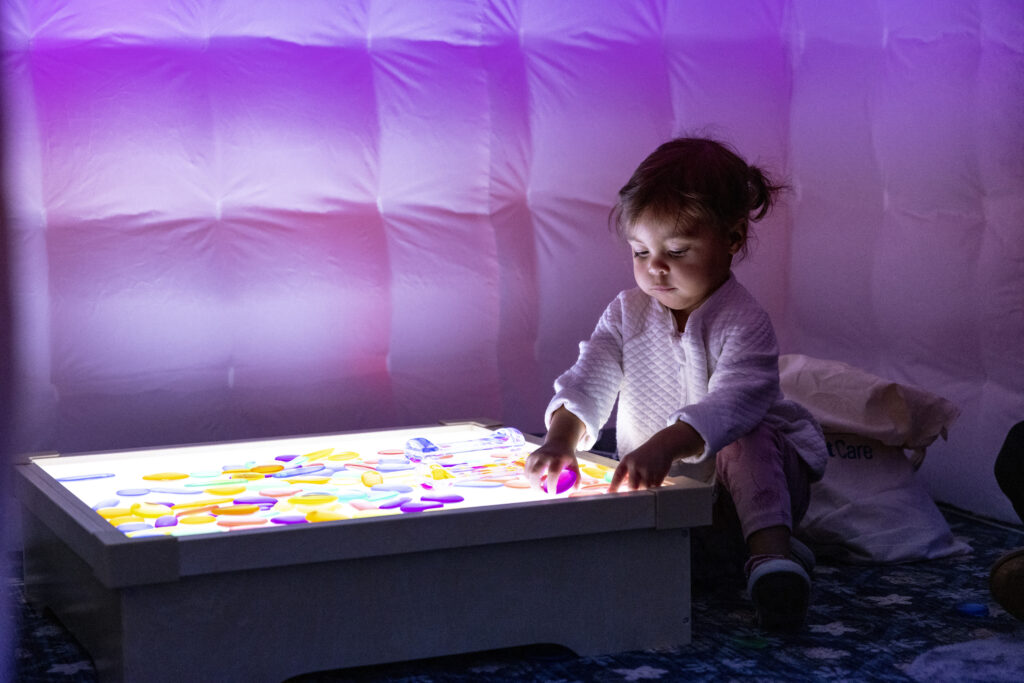
Sensory Sunday
Designed for families of children, teenagers, and young adults with disabilities who are neurodiverse, on the autism spectrum, or have sensory processing disorders or cognitive disabilities, Sensory Sundays provide a sensory inclusive experience during your visit to the museum. Sensory Sundays are hosted twice a year at the museum and are made possible with support from Jackson Health System.
Sensory Sunday: Inside the Sensory Room Social NarrativePre-Visit Materials
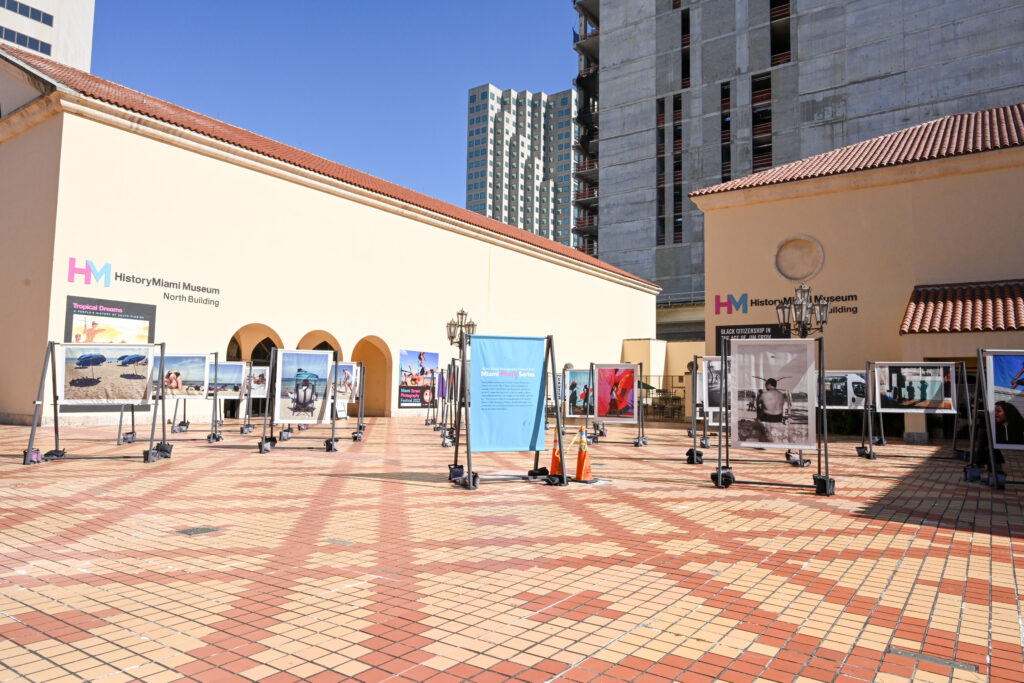
My Visit to HistoryMiami Social Narrative
Designed to help make museum-going a more inclusive and enjoyable experience for all visitors. Created with generous support from The Batchelor Foundation, this resource provides visitors—particularly those who benefit from structured preparation—with a visual and descriptive overview of what to expect during their museum visit.
HistoryMiami Museum Social NarrativeMuseum Sensory Map
Museum Sensory Map – English Museum Sensory Map – Spanish Museum Sensory Map – KreyòlCommunity Resources
